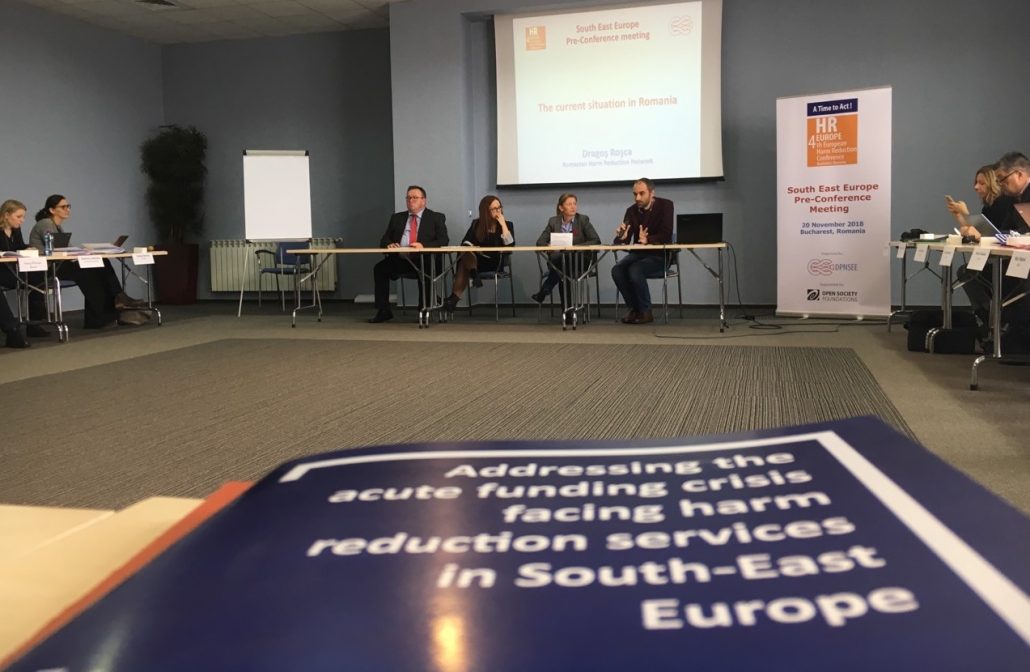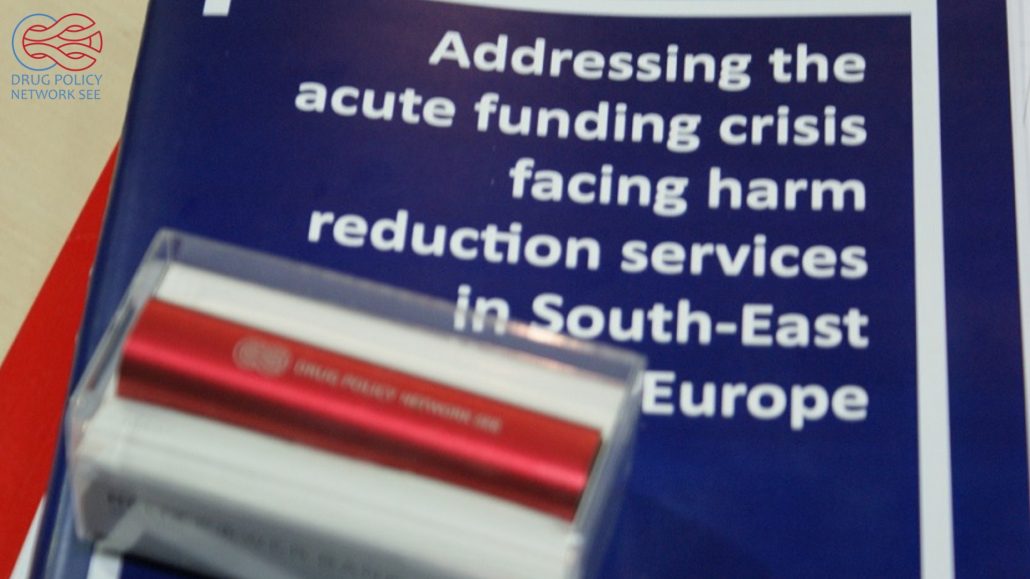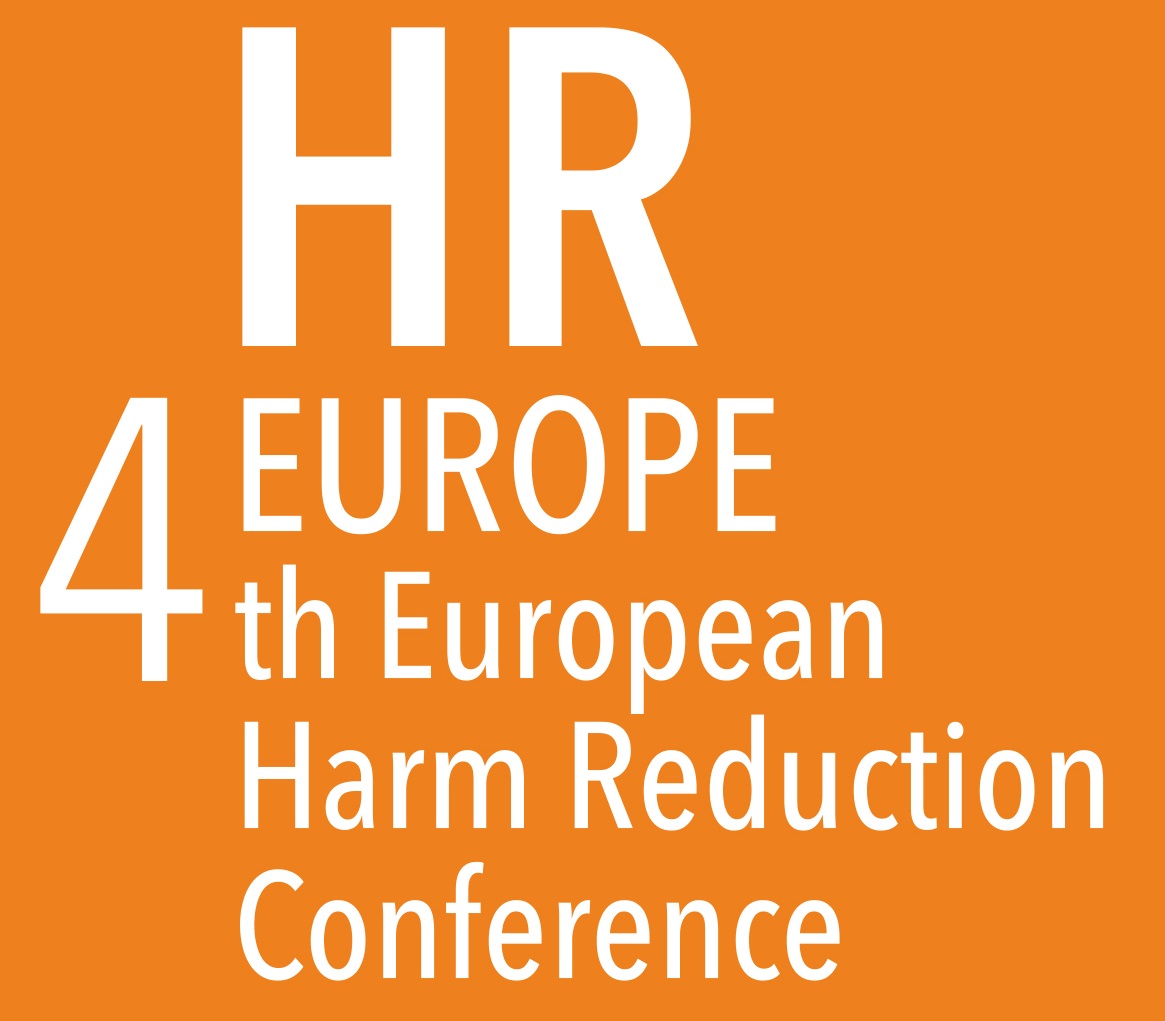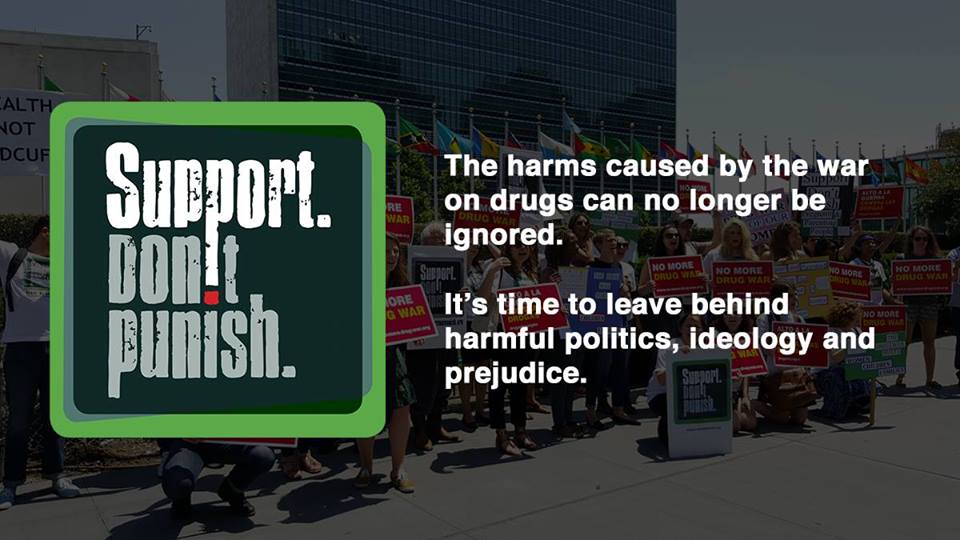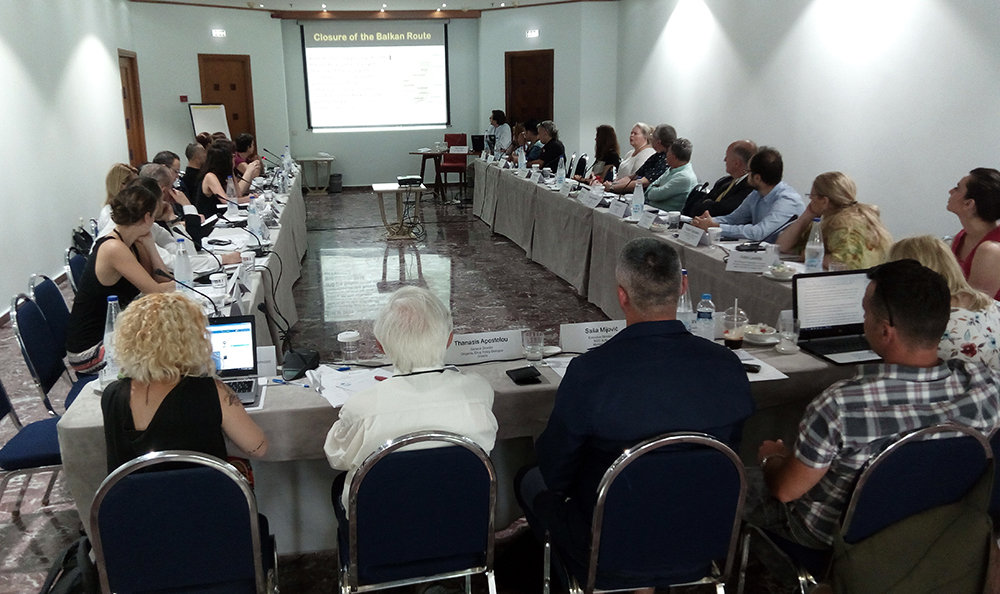On the occasion of the 26 June, The United Nations’ International Day against Drug Abuse and Illicit Trafficking, the Global Day of Action of the Support. Don’t Punish Campaign is organised in more than 150 cities in the world. The Drug Policy Network South East Europe this year again coordinates activities of the campaign in South East Europe, where 10 of our member organizations are pushing actions in 9 countries and 11 cities.
To the launch the campaign, DPNSEE will organise “Kick-off event” in the EU Info Centre in Belgrade, Kralja Milana 7, on 21 June 2018 at 12:00. Representatives of the Network will present the current situation in the countries of South East Europe. To contribute to the campaign, DPNSEE will also present the baseline research on “Documenting Drug Related Cases of Discrimination”, an activity within the project “Strengthening the capacity of civil society organizations in South-East Europe and promote drug policy based on respect for human rights and public health”. Our guests will be Danilo Ćurčić from the A11 – Initiative for economic and social rights and Dr Hajrija Mujović, Vice -chair of the Association of Lawyers for Medical and Health Law of Serbia – SUPRAM.
Representatives of the Network will as well present the activities of the Network members in the countries of the region.
In Albania, on the 26th of June, Aksion Plus will organize awareness activities in two cities, Tirana and Durres. The activities will include sharing leaflets and information especially toyoung people. In their Opioid Substitution Therapy centres, they will organize small group discussions, outreach information, leaflets distribution, one to one conversations and counselling to raise their awareness on how to better protect their rights, as well as to provide referrals to other institutions in case they face violations from police, courts and law enforcement agencies. During campaign clients will be strongly encouraged and supported to fight for their rights and report to the organisation or to the People’s Advocate when they face violence or stigma, and messages of the campaign will be also communicated to the Government officials.
In Bosnia and Herzegovina, organization Margina will organize events in city of Tuzla. That will include promotional activities, starting the campaign on 11th of June by screening documentary film “I want to wake up” with aim to point out the problem of education of young people and reducing stigma and discrimination against drug users. Other activities planned are Public Debate and Press Conference “CANTONAL INSTITUTION FOR DISEASES” – Why do we not have it? as introductory event to the entire day of action on 26th of June, that will also be presented through street action in city of Tuzla. In this event, following documents will be presented: Bosnia and Herzegovina National Drug Strategy 2018 – 2023, Policy to reduce drug use damage in the Federation of Bosnia Herzegovina, Decisions of the Government and the Tuzla Canton Assembly on the establishment of the “Institute for Addiction of the Tuzla Canton”. The Association Margina is dedicating this day, as well as other days of the year, to people who have adopted this “lifestyle” with the aim of bringing the wider community closer to the addicted population and so additionally contribute to the reduction of stigma and discrimination.
Check out their facebook event and join the day of action: https://www.facebook.com/events/407051669794756/
In Bulgaria, organization Initiative for Health Foundation will write and promote article, telling the story about the campaign worldwide and its implementation in Bulgaria in the last years. The article will be written by a professional journalist and popularized mostly in NGO platforms and other online channels. The organization will also develop a frame for a Facebook profile image and dissemination on social media consecutive counting of dissemination
To activate your facebook frame in the Bulgarian language go HERE

In Croatia, Organisation Terra will organise the Forum theatre performance on the problems of a former addict who is hindering discrimination due to his past. The play will be organised on the 26th of June, to mark the International day against drug abuse and illicit trafficking. The theatre will be played in the city of Rijeka, Croatia.
Check out their facebook event and join the day of action: https://www.facebook.com/events/2087957514813170/
In Greece, in Athens, the action will be implemented by the NGOs Platform for Psychoactive Substances. This platform is an unofficial initiative for joint action among organizations working in the area of drug policy and psychoactive substances, currently consisting of the following organizations: Centre for Life, Diogenis, Peers Network of Users of Psychoactive Substances, Positive Voice, Praksis, Prometheus and Steps. This year the Greek NGO Platform for psychoactive substances will undertake the organization and implementation of the campaign in Greece.
They are organising an event on Tuesday, June 26, 2018, at 7 pm, at the Athens Municipal Cellular Market (42, Fokionos Negris str) as an open dialogue regarding: current public health and drug policies applied in addressing the issue of psychoactive substances, the way users are being treated by the state and society, the issue of combating crime that accompanies drug use by law enforcement, and finally the removal of unjustified social stereotypes at the expense of PWUD, the
importance for the provision of substantial support, as well as the need for equal, meaningful and substantial participation of users community in procedures totally concerning them.
The event will be followed by participation of Mrs. Katerina Konidari, psychologist, social researcher, and writer, who will talk about the representation of addiction treatment on art; Mr. Michalis Lolis, Police Lieutenant of the A’ (First) Police Department for Combating Racist Violence, who will communicate his experience on human rights’ issues and the protection of people with different identities and Mr. Yannis Kissas, representative of the Peer Network of Users psychoactive Substances, who will specifically refer to the Network’s proposals for supportive policies rather than the punishment of drug users. The discussion will be co-chaired and coordinated by Mr. Christos Anastasiou, member of the Peer Network of Users Psychoactive Substances.
You can find the full press release in English HERE or on Greek HERE
To get involved:
Like their facebook page: https://www.facebook.com/supportdontpunishGreece/
Join their facebook event: https://www.facebook.com/events/179003616107047/
Follow them on Instagram: https://www.instagram.com/support.dont.punish_greece_/

In Macedonia, organisation HOPS will to focus on recreational drug use, harm reduction and human rights. The central event will be organized in Skopje, as a public debate/panel on the health and legal aspects of recreational drug use and harm reduction. Activists, experts, decisions and opinion makers will take part in the debate, which will also be streamed online. In addition, IEC materials will be produced containing information on practices for reducing harms from recreational drug use, as well as personal rights. The 3 different leaflets will be promoted during the public debate and will be later distributed during the field activities at music events. All activities will be supported by a social media campaign aimed to inform a wider audience on harm reduction practices and raise public awareness about human rights.
Check out their facebook event and join the day of action: https://www.facebook.com/events/1632706273514505/
In Montenegro, organisations Juventas and Link will organize several activities such as Street movie projection nights, on the 26th of June and screen a documentary by Drugreporter that would be premiered during the campaign. The documentary is following the work of our two NGOs, talking about the implementation of the Harm Reduction Program in Montenegro, most of all covering the story of the work and struggles of the Drop in centres for people who use drug and sex workers and our outreach work. Documentary is also talking about the challenges that NGO Juventas and NGO Link face in daily work with clients and in the partnering institutions. In addition to this documentary, other documentary films of the NGO’s that are conducting Harm Reduction program in the region are planned to be screened, as well as some cult films that correspond to the topic.
During the campaign the project team will set up an information stand at one of the University of Montenegro’s Faculty in order to influence on young people, share with them message of the Support. Don’t Punish campaign, as well as information about the harm reduction program itself and the services provided by NGOs Juventas and Link. NGOs will distribute information to media and ensure national media coverage.
Check out their facebook event and join the day of action: https://www.facebook.com/events/251897252232425/
In Romania, this year Romanian Harm Reduction Network alongside with other two member organisations of DPNSEE, ARAS and ALIAT will organize a series of activities to mark the Global Day of Action and participate in the campaign. They vary from online consultations with people who use drugs on changes to be made to the law 143/2000 on preventing and combating trafficking and illicit drugs use, using iterative-designed videos online to presents law 143/2000 and others laws on drugs in Europe. They will also organize a consultation meeting with representatives of NGOs providing services (prevention, harm reduction, treatment) for people who use drugs on the changes to be made to the law 143/2000 on preventing and combating trafficking and illicit drugs use, organize a “lawkathon” (working session) with lawyers from LGBT, human rights, Roma, education, feminist and/or housing NGOs to formulate the amendments to the law 143/2000 on preventing and combating trafficking and illicit drugs use, according to the proposals made by people who use drugs and NGOs providing services during the consultations, organize a round-table/meeting with representatives from various ministries on the proposal to amend the law 143/2000 on preventing and combating trafficking and illicit drugs use. Last but not least there will be organized flashmob/short event at the Parliament building to raise awareness on the proposal to amend the law 143/2000 on preventing and combating trafficking and illicit drugs use.
In addition to the activities listed above, they are planning on connecting a series of other events financed through private sources to raise awareness on stigma associated with substance use and addiction, under the same harm reduction / Support. Don’t Punish umbrella.
The facebook event to join the action is: https://www.facebook.com/events/179830952686479/
In Serbia, NGO Prevent will implement action Support. Don’t Punish for the fourth time in Novi Sad. Campaign will start on 20th June when the media were informed about the action. Prevent will spread information through social networks and during campaign reach over 30 thousand people in this way. Prevent also announced the competition for the best short video on the topic Support. Don’t. Punish which will be the official promo video of their Association for participation in a global campaign marking International Day Against Drug Abuse and Illicit Trafficking 26th of June.
To follow up their camapaign and street action find more information on their facebook page: https://www.facebook.com/preventns/
NGO Re Generation, together with Drugstore Belgrade, announcing the Global Day of action within the campaign Support. Don’t Punish, are organizing an event that will start the cooperation of this club and this organization in order to create safer nightlife, which is the first of this kind in Serbia. After recent events in Europe that have been linked to drug policy and nightlife, NGO Re Generation and Drugstore decided to launch higher-level cooperation within the framework of the Global Day of Action, in order to influence the change of awareness and the change in drug policies in general. Joining the campaign, Re Generation and Drugstore want to express sincere concern and start the program, present the activities within the cooperation with which they start their own struggle for safer, better quality and better night environment that we are all part of!
Join their event and support the healthy nightlife settings: https://www.facebook.com/events/278127766064145/

 The Commission’s Western Balkans Strategy of February 2018 generated a renewed engagement by the EU and its Member States and created new momentum across the region. One year on, the partner countries have made concrete progress and demonstrated commitment to the European perspective, even if the overall uptake of reforms varies.
The Commission’s Western Balkans Strategy of February 2018 generated a renewed engagement by the EU and its Member States and created new momentum across the region. One year on, the partner countries have made concrete progress and demonstrated commitment to the European perspective, even if the overall uptake of reforms varies. The document we prepared is downloadable following this link>>>
The document we prepared is downloadable following this link>>>
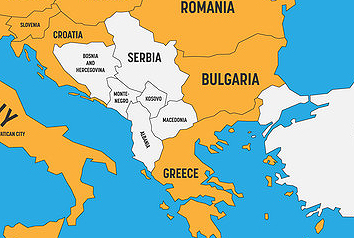
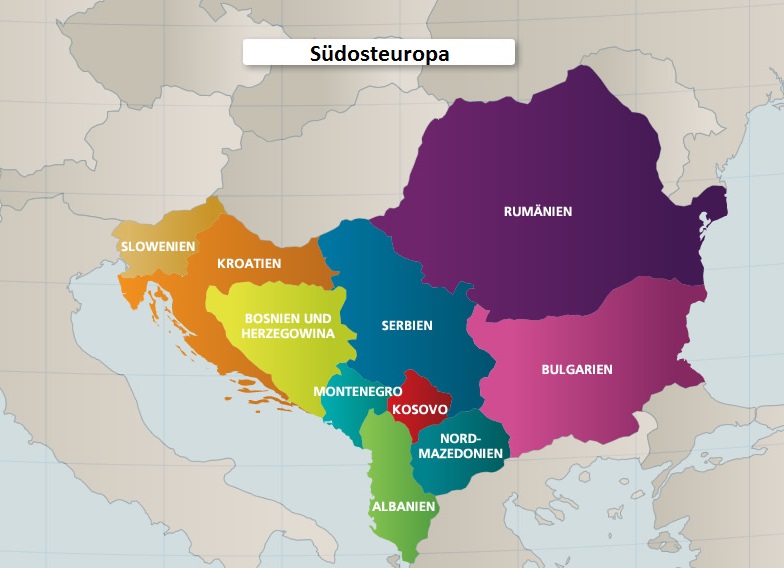
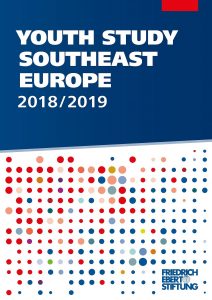 The most important results are grouped under headlines:
The most important results are grouped under headlines:

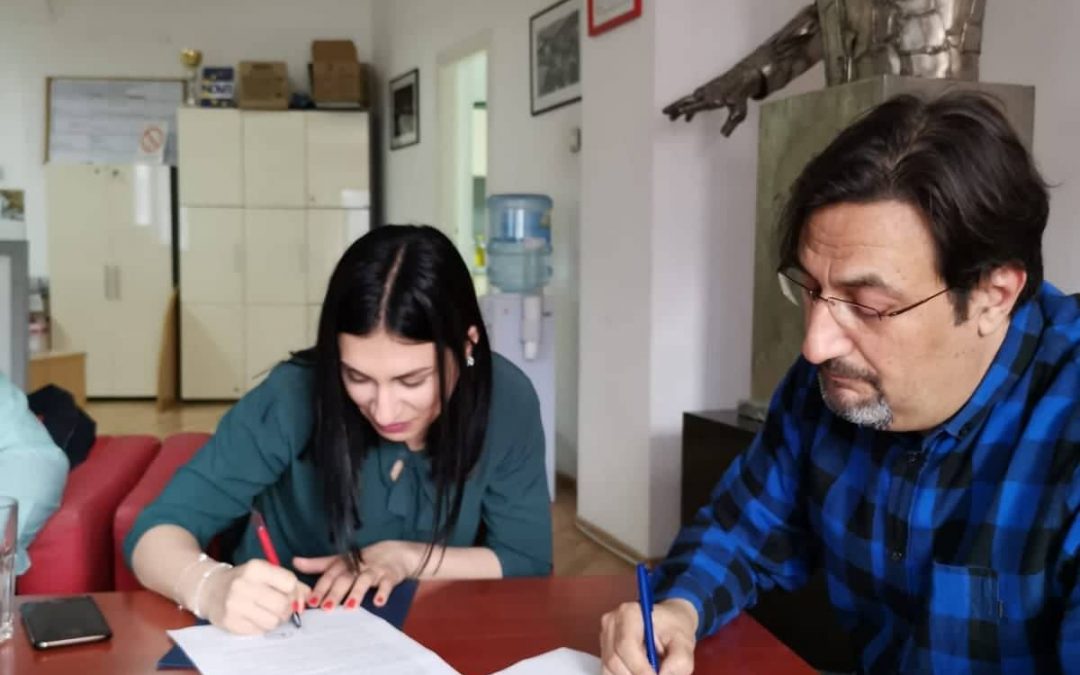
 The President of the Council of the Nova stranka, Aris Movsesian said that it is normal for the Nova stranka, as well as all other political parties, to sign this declaration. Nova stranka is committed to joining the European Union, and the last year’s European Commission report calls for regulating the treatment of HIV patients, specifically in Chapter 28 where such measures are proposed. Nova stranka also emphasises in point 8 of their Action Plan the problem of relations with vulnerable groups of citizens.
The President of the Council of the Nova stranka, Aris Movsesian said that it is normal for the Nova stranka, as well as all other political parties, to sign this declaration. Nova stranka is committed to joining the European Union, and the last year’s European Commission report calls for regulating the treatment of HIV patients, specifically in Chapter 28 where such measures are proposed. Nova stranka also emphasises in point 8 of their Action Plan the problem of relations with vulnerable groups of citizens.